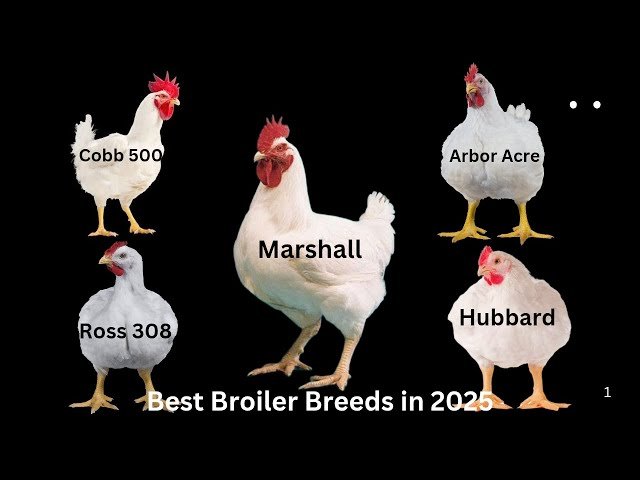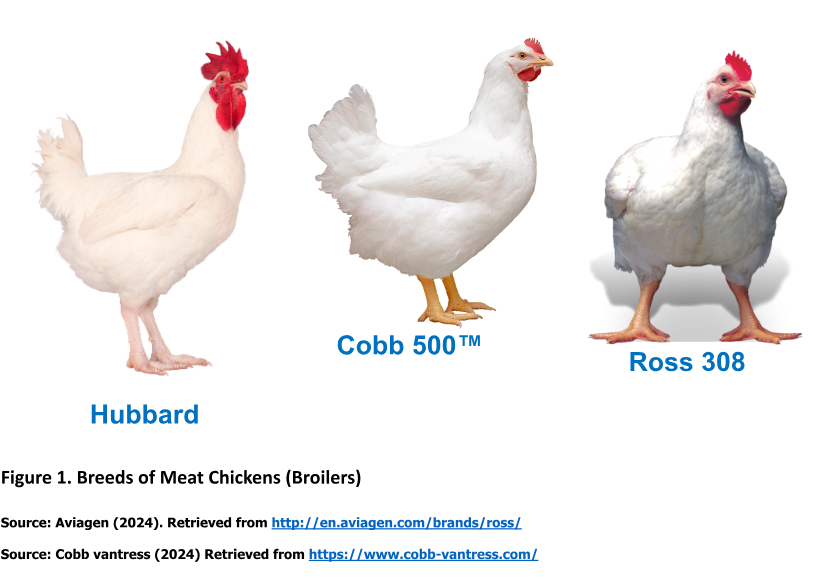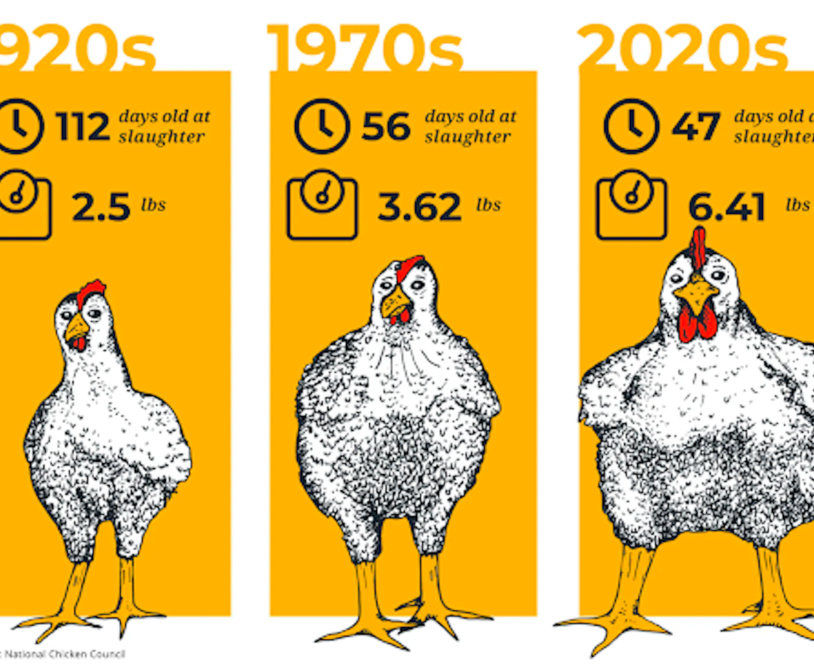Choosing the right broiler breed is key for small-scale poultry farmers. It affects productivity, resource use, market demand, and farm success. We’ll look at the top 5 broiler breeds for small-scale poultry farming. We’ll focus on their unique traits, growth rates, and meat production to guide your choice.
Whether you’re an experienced farmer or new to the field, knowing about different broiler breeds is crucial. It helps you reach your production goals and meet local market needs. By the end of this article, you’ll know the top 5 broiler breeds that can do well in your small-scale poultry farm.
Introduction to Broiler Breeds for Small-Scale Poultry Farming
Broiler chickens are a special type of chicken raised for their meat. They are key to the poultry industry, offering a cheap and plentiful protein source. For those with small farms or backyard chickens, knowing about broiler breeds is vital for raising meat.
What is a Broiler Breed?
A broiler breed is a chicken type bred for fast growth and efficient meat production. They are ready for slaughter in 5-8 weeks, much quicker than other chickens. This makes them great for small farms looking to raise meat.
Benefits of Raising Broiler Chickens for Meat Production
- Fast growth rate, reaching processing weight in 5-8 weeks
- High feed conversion efficiency, converting feed into meat more effectively
- Excellent meat yield and carcass quality
- Suitability for small-scale farms and backyard operations
- Affordable and accessible source of protein for families
Understanding broiler breeds and their benefits helps farmers choose the right chickens. This ensures a steady and sustainable meat supply.
Cornish Cross: A Hybrid Broiler Breed for Rapid Growth
For small-scale poultry farmers, the Cornish Cross is a great choice. It’s known for its fast growth and meat production. This hybrid breed is popular among backyard and small-scale farmers.
The Cornish Cross combines the Cornish and White Plymouth Rock chicken breeds. It’s known for quickly turning feed into lean, juicy meat. This means it grows fast, reaching market weight in 4-6 weeks.
One big plus of the Cornish Cross is its feed efficiency. It can turn 1.5 pounds of feed into 1 pound of live weight. This makes it a cost-effective choice for meat production.
| Trait | Cornish Cross |
|---|---|
| Growth Rate | Rapid, reaching market weight in 4-6 weeks |
| Feed Conversion Ratio | Highly efficient, with a ratio as low as 1.5:1 |
| Meat Yield | Excellent, with a high percentage of white meat |
The Cornish Cross also has a high meat yield. It has a lot of white meat, which is very valuable. This makes it a great choice for small-scale farmers wanting to increase their meat production.
In summary, the Cornish Cross is a hybrid broiler breed that’s perfect for small-scale poultry farmers. It offers fast growth, efficient feed conversion, and great meat yield. Its performance makes it a top choice for raising productive and profitable broiler chickens on a smaller scale.
Top 5 Broiler Breeds for Small-Scale Poultry Farmers
Choosing the right broiler breed is key to small-scale poultry farming success. The Cobb 500, Ross 308, and Hubbard Flex are top picks. Each breed has its own benefits.
Cobb 500
The Cobb 500 is famous for growing fast and using feed well. It reaches 4-5 pounds in 5-6 weeks, perfect for quick meat production. It’s also easy-going and tough, ideal for small farms.
Ross 308
The Ross 308 is known for its great feed efficiency, around 1.5-1.6. It grows to 4-5 pounds in 5-6 weeks, great for small meat production. It also adapts well to different environments, making it versatile for small farmers.
Hubbard Flex
The Hubbard Flex is a dual-purpose breed, growing fast and producing good meat. It reaches 4-5 pounds in 6-7 weeks, with a feed ratio of 1.7-1.8. It’s friendly and fits well in various farm settings, perfect for small farms.
When picking a broiler breed, think about growth rate, feed efficiency, and meat quality. Breeds like Cobb 500, Ross 308, and Hubbard Flex can help meet your small-scale poultry goals.
Factors to Consider When Choosing a Broiler Breed
Choosing the right broiler breed for your small poultry farm is key. You need to look at growth rate, feed efficiency, meat yield, and carcass quality. These factors greatly affect your farm’s success and profits.
Growth Rate and Feed Conversion Efficiency
The growth rate of a broiler breed is very important. It determines how quickly birds reach market weight. Faster-growing breeds like Cobb 500 or Ross 308 get there faster. This means you can use resources more efficiently and produce more.
Feed conversion efficiency is also crucial. It shows how well birds turn feed into meat. Breeds like Hubbard Flex are more efficient. They produce more meat with less feed, saving you money and increasing profits.
Meat Yield and Carcass Quality
The main goal of raising broiler chickens is to get high-quality meat. You should check the meat yield and carcass quality. Things like breast meat ratio, skin thickness, and carcass appearance matter a lot.
By considering these factors, you can pick the best broiler breed for your farm. This ensures you meet your market’s needs and succeed in your poultry business.
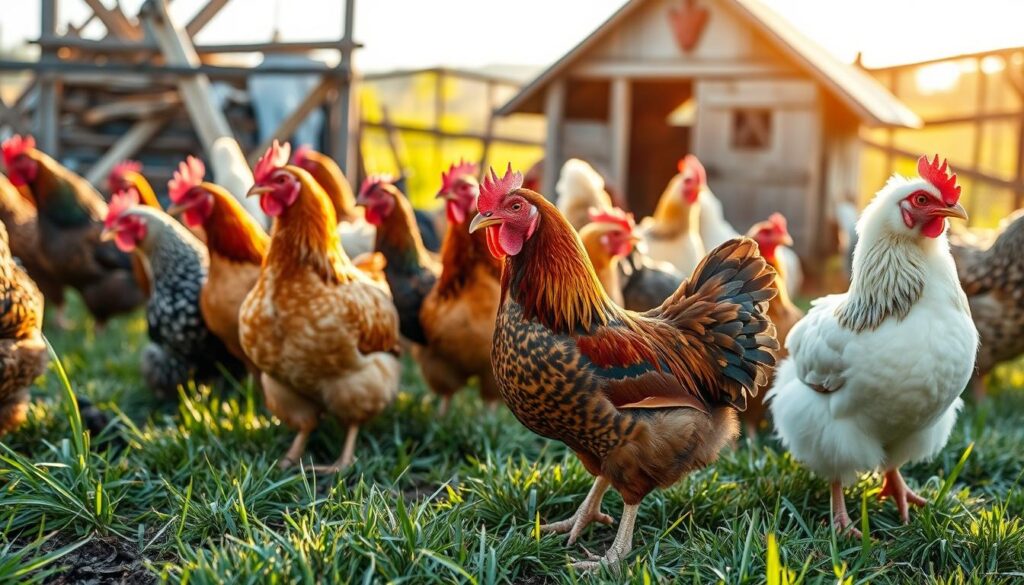
Raising Broiler Chickens on a Small Scale
Raising broiler chickens on a small scale can be very rewarding. It’s great for those into small-scale poultry farming or who just want a few backyard chickens. Knowing how to care for broiler chickens is key to their health and your success.
First, you need to think about their housing. Broilers need a place that’s well-ventilated, has the right temperature, and lots of room. The first few weeks, called the brooding period, are very important for their growth.
Feeding and nutrition are also crucial. Small farmers must give them a diet rich in protein to help them grow fast. Watching how much they eat and adjusting their food as they get bigger helps them grow efficiently.
- Provide a well-ventilated, temperature-controlled housing environment
- Pay close attention to the brooding period for chick development
- Implement a balanced, protein-rich feeding regimen to support rapid growth
- Monitor feed consumption and adjust portions as the chickens mature
By knowing what broiler chickens need, small-scale poultry farmers can do well. They can raise these chickens to provide fresh meat for their families or local markets.
Backyard Broiler Chicken Care and Management
Raising backyard broiler chickens needs careful attention. You must focus on their housing, brooding, feeding, and nutrition. The right environment and diet are key to their health and growth.
Housing and Brooding Requirements
Creating a good home for broiler chickens is vital. Make sure the coop is well-ventilated and has enough space. Also, provide heat lamps and the right bedding to keep chicks warm and cozy.
Feeding and Nutrition
Feeding and nutrition are critical for broiler chickens. Give them a balanced diet rich in protein, like commercial broiler rations. Always have clean, fresh water available. Watch their feed intake to help them grow well.
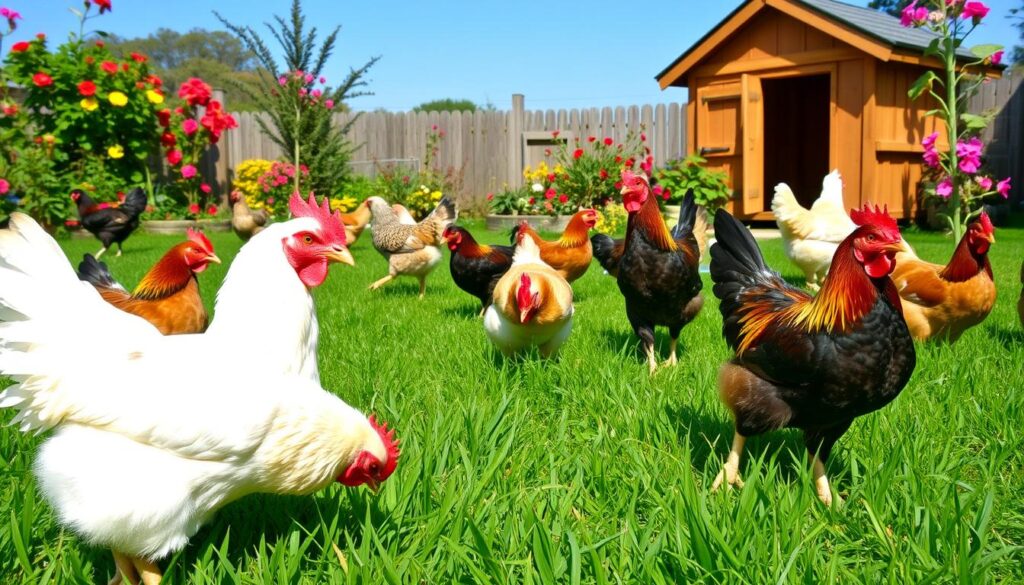
By paying attention to housing, brooding, feeding, and nutrition, you can raise healthy backyard broiler chickens. This focus supports their successful growth and development.
Heritage Broiler Breeds: A Sustainable Option
Heritage broiler breeds are a great choice for small-scale poultry farming. They offer tasty and healthy meat. They also support environmentally-friendly farming.
These breeds grow smore slowlyand have strong immune systems. They do well on a variety of plants, not just commercial feed. This makes them a good option for farmers wanting to use less energy and promote natural farming.
The Buckeye, Delaware, and New Hampshire are some notable heritage breeds. Dedicated breeders have kept these breeds alive. They ensure these breeds’ unique traits and adaptability to local areas.
Choosing heritage breeds helps farmers save agricultural diversity. It also gives communities access to high-quality, sustainable meat. This choice is good for the environment and supports local food systems. It also keeps traditional poultry farming alive.
Hybrid vs. Heritage Broiler Breeds: Pros and Cons
Choosing between hybrid and heritage broiler breeds for your small-scale farm is a big decision. Hybrid breeds like the Cobb 500 and Ross 308 grow fast and use feed well. They’re great for big meat production. Heritage breeds, such as the Orpington and Delaware, have special flavors and are tough. They appeal to those who want traditional poultry.
Hybrid breeds grow to market weight quickly, often in 5-6 weeks. This means they’re efficient and cost-effective for farmers. They also convert feed into meat better than heritage breeds. But, they need special care and don’t do well in free-range or organic systems.
Heritage breeds, however, are prized for their unique tastes, strong health, and adaptability. They live longer and forage well, which is good for farmers wanting to raise pasture-raised, antibiotic-free birds. They may take longer to grow, but their hardiness and fit for sustainable farming make them a great choice.


